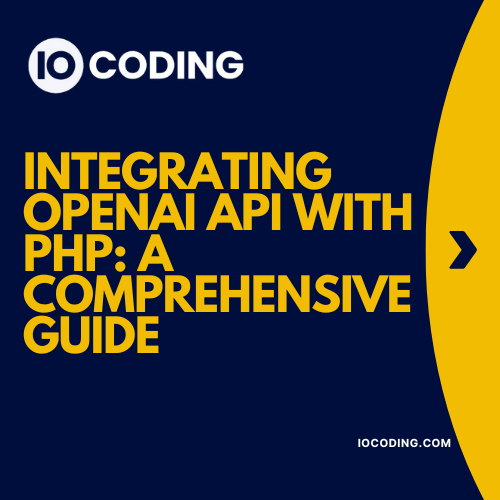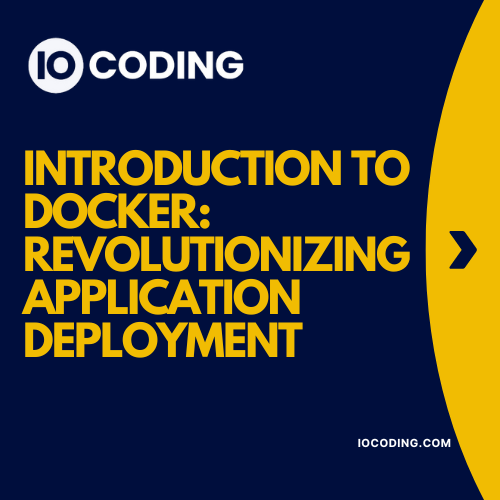Table of Contents

Introduction
Artificial Intelligence (AI) is revolutionizing how we interact with technology, and OpenAI stands at the forefront of this revolution. By integrating the OpenAI API with PHP, developers can add powerful AI functionalities such as text generation, sentiment analysis, and more to their applications. This guide will walk you through the steps needed to integrate the OpenAI API with PHP, providing practical examples and best practices.
1. Setting Up the PHP Project
Installing PHP
Ensure that PHP is installed on your machine. You can download the latest version from the official PHP website.
Setting Up a Composer Project
Composer is a dependency manager for PHP that helps manage your project libraries. Install Composer if you haven’t already, and initialize a new project:
composer init
Installing Required Packages
Install GuzzleHTTP to handle HTTP requests and dotenv to manage environment variables:
composer require guzzlehttp/guzzle vlucas/phpdotenv
2. Configuring Environment Variables
Create a .env file in the root of your project to securely store your OpenAI API key:
OPENAI_API_KEY=your_openai_api_key
Load these environment variables in your PHP application by requiring dotenv in your main file:
require 'vendor/autoload.php';
$dotenv = Dotenv\Dotenv::createImmutable(__DIR__);
$dotenv->load();
3. Creating the OpenAI Service
Service Class
Create a service class to handle interactions with the OpenAI API. Create a new file OpenAIService.php:
<?php
namespace App\Services;
use GuzzleHttp\Client;
class OpenAIService
{
protected $client;
public function __construct()
{
$this->client = new Client([
'base_uri' => 'https://api.openai.com/v1/',
'headers' => [
'Authorization' => 'Bearer ' . getenv('OPENAI_API_KEY'),
'Content-Type' => 'application/json',
],
]);
}
public function generateText($prompt)
{
$response = $this->client->post('completions', [
'json' => [
'model' => 'text-davinci-002',
'prompt' => $prompt,
'max_tokens' => 100,
],
]);
return json_decode($response->getBody(), true);
}
}
4. Making API Requests
Controller Setup
Create a controller to manage API requests and responses. Create a new file OpenAIController.php:
<?php
namespace App\Controllers;
use App\Services\OpenAIService;
class OpenAIController
{
protected $openAIService;
public function __construct()
{
$this->openAIService = new OpenAIService();
}
public function generateText()
{
if ($_SERVER['REQUEST_METHOD'] === 'POST') {
$prompt = $_POST['prompt'];
try {
$response = $this->openAIService->generateText($prompt);
header('Content-Type: application/json');
echo json_encode($response);
} catch (\Exception $e) {
http_response_code(500);
echo json_encode(['error' => $e->getMessage()]);
}
}
}
}
5. Defining Routes
Create an entry point for your application. Create an index.php file:
<?php
require 'vendor/autoload.php';
require 'app/Controllers/OpenAIController.php';
use App\Controllers\OpenAIController;
$controller = new OpenAIController();
if ($_SERVER['REQUEST_URI'] === '/generate-text' && $_SERVER['REQUEST_METHOD'] === 'POST') {
$controller->generateText();
} else {
http_response_code(404);
echo json_encode(['error' => 'Not Found']);
}
6. Creating the View
Create a simple HTML form to interact with the OpenAI API. Create index.html:
<!DOCTYPE html>
<html>
<head>
<title>Generate Text</title>
</head>
<body>
<form action="/generate-text" method="POST">
<textarea name="prompt" placeholder="Enter your prompt here"></textarea>
<button type="submit">Generate</button>
</form>
</body>
</html>
7. Example Use Cases of Integrating OpenAI API with PHP
Text Generation
Integrate text generation into your application by sending a prompt to the OpenAI API and displaying the generated text to the user.
Sentiment Analysis
Enhance your application by analyzing user-provided text for sentiment, providing insights into the emotions conveyed in the text.
Chatbot Integration
Create a sophisticated chatbot that uses the OpenAI API to generate intelligent responses based on user inputs.
8. Best Practices and Security
API Key Security
Never expose your API key in client-side code. Store it securely in environment variables or use server-side proxies.
Rate Limiting and Error Handling
Implement rate limiting to manage API usage and include comprehensive error handling to provide feedback and ensure a smooth user experience. Proper error handling will not only enhance the robustness of your application but also provide a better user experience by offering meaningful error messages and solutions.
Performance Optimization
Ensure that your application remains performant by optimizing API calls and handling responses efficiently. Caching responses where appropriate can also help reduce the load on the API and improve the responsiveness of your application.
Continuous Monitoring and Logging
Implement logging and monitoring to keep track of API usage and detect any issues early. This will help you maintain the reliability and performance of your application over time.
Staying Updated
Keep up with updates and changes to the OpenAI API and PHP to ensure compatibility and leverage new features as they become available. Regularly review the documentation and participate in community forums to stay informed about best practices and emerging trends.
Conclusion
By integrating the OpenAI API with PHP, you can build powerful, intelligent applications that leverage the strengths of AI. This comprehensive guide provides you with the tools and knowledge to start using these technologies together, enabling you to create advanced functionalities, perform natural language processing, and gain deeper insights from your data. For more detailed information, visit the OpenAI API documentation and the PHP documentation.
If you need help, feel free to Contact Us.



